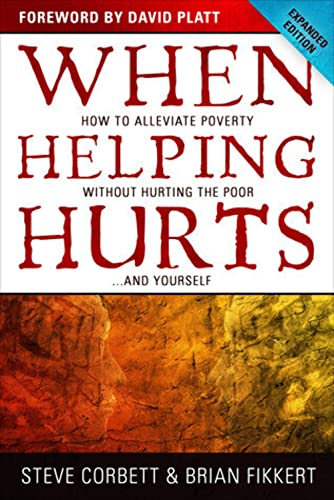

Most of Corbett and Fikkert’s observations come from Christian ministries to the poor, and the authors also have a background in evangelical Christianity. Then we’ll consider the solutions they propose. In this guide, we’ll first discuss the authors’ exposition of the problems with common methods of poverty alleviation. When this happens, it undermines the program’s effectiveness because the sense of powerlessness is an even more fundamental component of poverty than a lack of physical resources.

In When Helping Hurts, Steve Corbett and Brian Fikkert, two experts in finance and poverty alleviation working at the Chalmers Center, a Christian non-profit, explain how poverty relief efforts can reinforce the recipients’ sense of powerlessness, especially when administered in a spirit of paternalism. We’ll also provide additional resources for applying some of their advice and compare their perspective to other poverty alleviation experts, such as Abhijit Banerjee, Esther Duflo, and Amartya Sen.ġ-Page Summary 1-Page Book Summary of When Helping Hurts

In this guide, we’ll examine their concerns, their exposition of the essence of poverty, and their suggestions for helping the poor effectively-whether by restructuring mission trips or canceling them in order to support other, more effective forms of poverty alleviation. But Christian economic development experts Steve Corbett and Brian Fikkert express concern that many of these missions actually do more harm than good because the people who organize them misunderstand the true nature and causes of poverty. The purpose of these missions is ostensibly to spread the gospel and help the poor, particularly in developing nations. Since the 1980s, short-term mission trips have become a popular form of ministry for many evangelical Christian churches throughout North America. Book Rating by Shortform Readers: 4.6 ( 158 reviews)


 0 kommentar(er)
0 kommentar(er)
